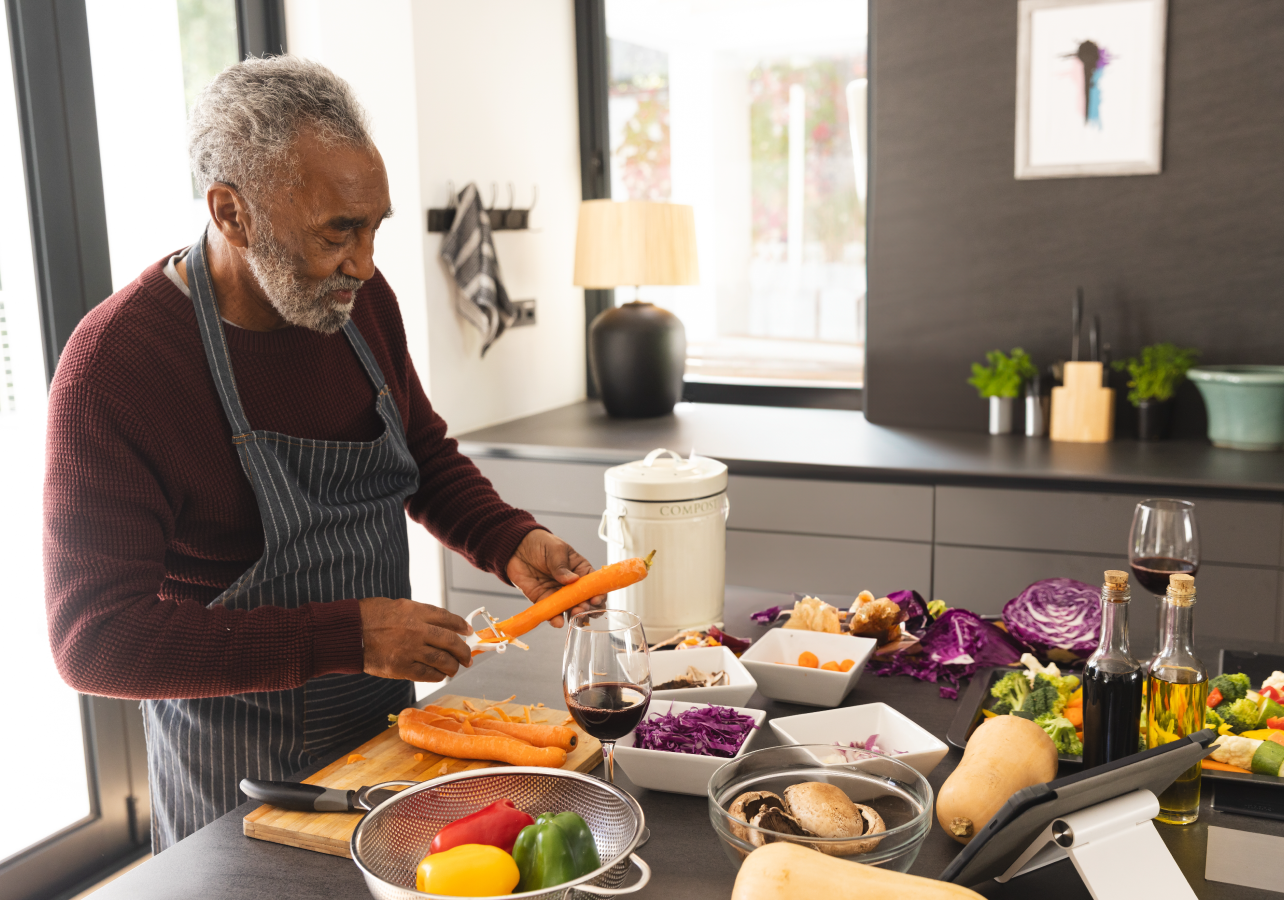As your loved ones age, it's only natural to worry about their health and well-being—especially if you can’t be with them every day. Many health issues develop slowly and silently, only becoming obvious when something serious happens, like a fall, a hospital visit, or a sudden change in mood or energy. That’s why catching small changes early can make a big difference.
With people over 60 expected to make up more than double today’s population by 2050, families everywhere are looking for better ways to support aging parents and relatives. The good news is, technology is stepping up to help. At the heart of this innovation is Wi-Fi Sensing —the core technology that powers Caregiver Aware, our caregiving and aging-in-place solution. This non-intrusive tool can monitor key daily habits like movement, sleep, and even social activity, all without the need for cameras or wearable devices. By keeping an eye on these three key wellness indicators, you can help your loved one stay independent longer while gaining the peace of mind that comes from knowing you’ll spot warning signs before they become serious health concerns.
1. Mobility: How Much Are They Moving Around?
Movement matters more than we often realize. Regular activity helps seniors stay stronger, steadier on their feet, and more mentally sharp. But as people age, they might slow down—sometimes without even noticing it themselves.
Why it’s important to track:
- A decrease in daily movement can be an early sign of pain, fatigue, depression, or even balance issues.
- Limited movement between rooms might mean your loved one is staying in bed or on the couch more often—possibly due to discomfort or fear of falling.
How Caregiver Aware helps:
- It tracks general movement throughout the home—like how often someone goes from the bedroom to the kitchen.
- If there’s no movement during times they’re usually active, you can get a notification to check in.
- No need for wearable devices or cameras—just quiet monitoring in the background.
This can help you spot patterns early and decide when it might be time to call a doctor, schedule a visit, or encourage more gentle movement.
2. Sleep: Are They Getting the Rest They Need?
Good sleep is essential for memory, energy, and mood. But many seniors have a harder time sleeping as they age. Conditions like sleep apnea, frequent bathroom trips, or anxiety can keep them from getting the rest their body and brain need.
Why it’s important to track:
- Poor sleep can lead to confusion, daytime drowsiness, or even increased fall risk.
- Changes in sleep patterns often signal bigger issues like depression or chronic pain.
How Caregiver Aware helps:
-
It monitors motion patterns overnight to see if someone is getting up often or staying awake for long stretches.
-
It gives you an easy way to notice if sleep quality has changed over time—without needing to ask every day or rely on memory.
If your loved one starts waking up more often or sleeping less than usual, it may be time to talk with a healthcare professional.
3. Social Engagement: Are They Staying Connected?
Staying socially active is one of the most important ways for seniors to stay emotionally and mentally healthy. Whether it’s coffee with friends, a weekly church service, or a family outing—these events give seniors something to look forward to and help them feel connected.
Why it’s important to track:
- Skipping regular events or outings could be a sign of physical discomfort, low energy, or depression.
- Social withdrawal often happens gradually, making it hard to notice right away.
How Caregiver Aware helps:
- You can set alerts for regular events—like if your loved one usually goes out every Thursday morning.
- If movement is detected at home during that time, you’ll get an alert—giving you a reason to check in and ask how they’re feeling.
This simple check-in can help you find out what’s going on early—before isolation becomes a bigger issue.
A Gentle Way to Stay in the Loop
As a caregiver, you want your loved one to stay independent, but you also want them to stay safe. Caregiver Aware gives you a way to quietly support them in the background—no cameras, no complicated setups, and no disruption to their daily life. Just helpful insights to keep you informed and give everyone more peace of mind.
Whether you live down the street or across the country, it’s one more tool to help you stay connected, stay proactive, and show your care in a meaningful way.
Ready for more peace of mind?
Get Caregiver Aware today and start supporting your loved one with smart, reliable monitoring powered by Wi-Fi Sensing.
